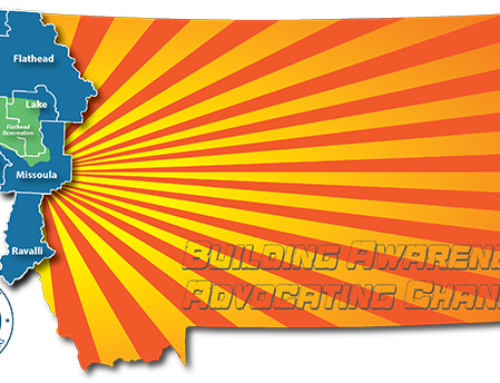For thousands of people with disabilities and older Montanans, Medicaid is not simply a social safety net; it is a lifeline and primary means of survival. It is a program that can allow an individual to live as independently as possible.
Without Medicaid, many people would not be able go to work to better their own lives and work their way off of government assistance. Worse, they could be unnecessarily forced into a nursing home or other institutionalized care setting. Many people with disabilities need Medicaid so they can stay in real homes instead of nursing homes. Some need it to assist in paying for equipment and services so they can get dressed, eat a meal or even use the bathroom. It is a program that can allow individuals the opportunity to have lives and remain active in their communities. With it, people can use their abilities to get jobs or go to school. They can work their way out of poverty and towards self-sufficiency instead of being forced to remain living in destitution.
On September 21, 2011, thousands of people with disabilities, seniors, family members, direct care workers and other allies gathered on Capitol Hill in Washington, D.C., and around the country, to fight the federal attack on Medicaid in “My Medicaid Matters” rallies. The rallies were intended to bring attention to the federal budget crisis’ potential to create a recipe for disaster for Medicaid recipients and to send the message to Congress, and their newly appointed “Super Committee” tasked with finding $1.5 trillion in debt reduction, that Medicaid needs to be protected and improved, not slashed and burned.
Here in Montana, corresponding rallies were held at several of the offices of Sen. Max Baucus. In Missoula, approximately 35 people gathered to talk with Jennifer Ewan, Sen. Baucus’ Missoula field representative, and to deliver a letter from the Missoula Coalition for Disability Rights telling Sen. Baucus that Medicaid matters to thousands of Montanans. They urged him to fight to protect and improve the program during the “Super Committee’s” budget negotiations.
As a member of Congress’s “Super Committee,” Sen. Baucus will be making critical decisions that could significantly impact the lives of Medicaid recipients, their families and support workers. He is in a powerful position to stand up for lower- and middle-class families by defending Medicaid, and Medicare, against drastic and unnecessary cuts.
Instead of arbitrary cuts, pushing for program reforms to make them more efficient by expanding the use of community-based services and consumer-directed service options, and reorganizing services to eliminate wasteful bureaucracy, would be of benefit to all Americans.
Montana, and all of America, needs real Medicaid reforms that respect the dignity and civil rights of seniors, people with disabilities and anyone who relies on Medicaid as a lifeline. Solely making across-the-board cuts to vital services in an attempt to achieve savings is not a solution, nor will it likely have the desired long-term effect of reducing Medicaid costs.





Connect With Us